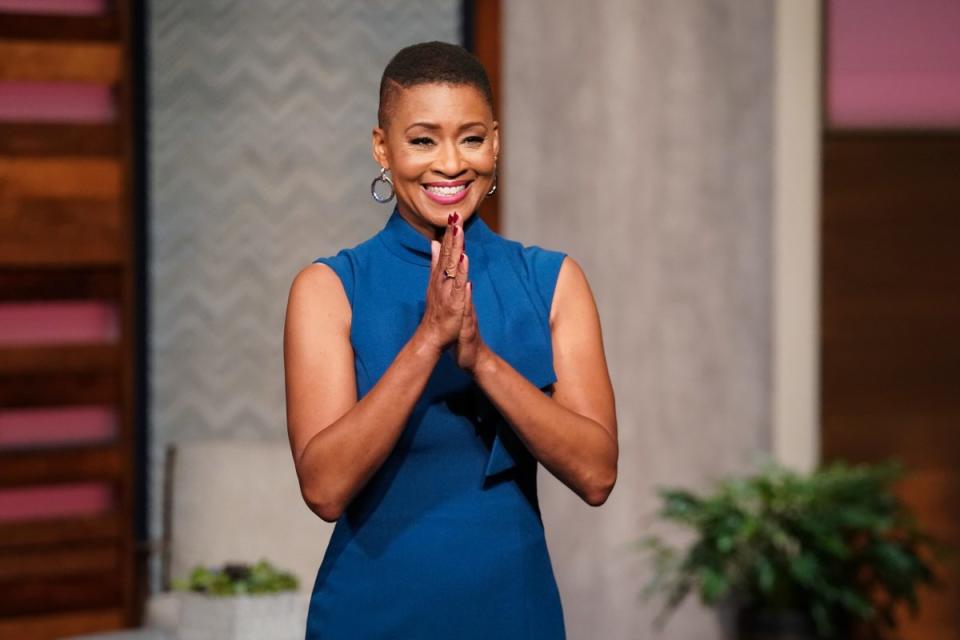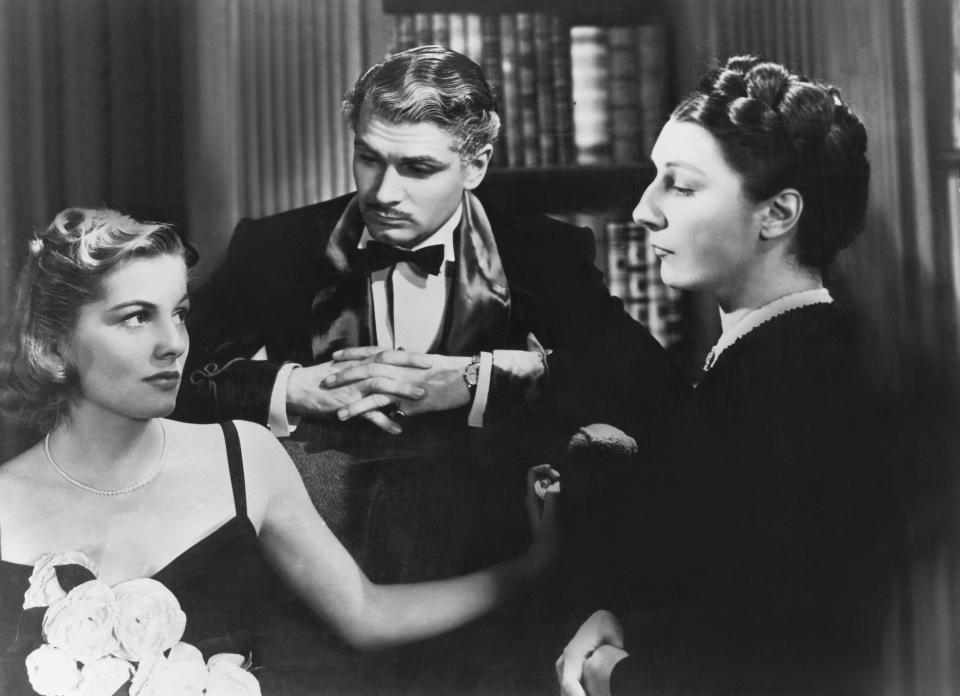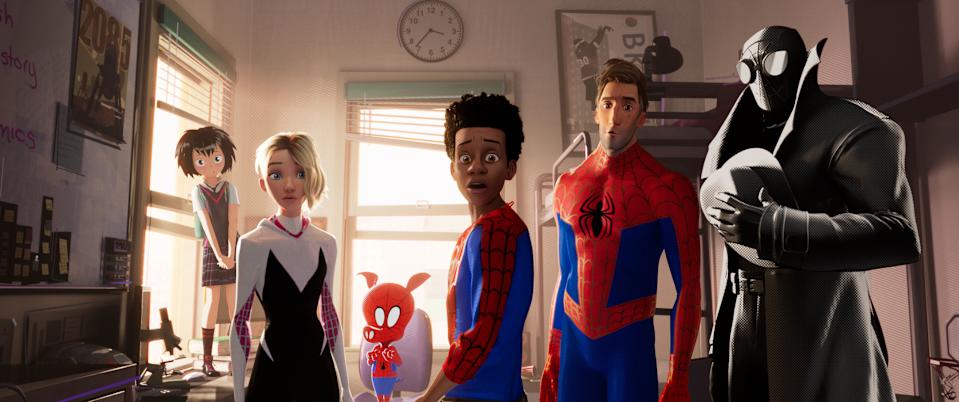A New Academy Museum Podcast Revels in Hollywood Casting Coups and Untapped Trivia

Casting is one of the hidden arts of Hollywood, and starting June 15, the second season of The Academy Museum Podcast, “Close Up on Casting,” hosted by the Museum’s Director and President Jacqueline Stewart, delves into often misunderstood art and influence of Hollywood casting.
The audio series draws inspiration from the museum’s galleries, Stewart said during a recent small press gathering and podcast preview for the episode centered on the Hitchcock film “Rebecca.” She saw that her curators had more research and intel to share than was possible to display in the audience-favorite Performance Gallery, packed with early Polaroids of actors, audition tapes, and casting directors’ notes, which deserves to be expanded. The typewritten list of actresses considered for producer David O. Selznick’s production of “Rebecca” (1940), for example, is priceless, with often snarky and misogynist descriptions by each name.
More from IndieWire
The Language in DGA's A.I. Deal Is Stronger Than You Think, but Not as Strong as You'd Like
'Oppenheimer' Could Open in Third Place, but It Might Not Matter
“It was really interesting to watch visitors imagine different possibilities for some of their favorite films,” Stewart said in the podcast intro. “There’s an essential casting story behind every Oscar winner, and we’ll be shedding light on the history of this profession. We’ll be working our way from the classic Hollywood studio era to today. And with every film and story, we’ll be asking who gets the part? How does that choice get made? And what does it mean for a film for an actor and for audiences? You’ll hear from directors Academy museum curators, film historians, producers, and of course casting directors.”
Produced by Laist Studios, the ten episodes include interviews with casting directors and scholars, including Sarah Finn, Eric Goldberg, Kimberly Hardin, Mary Hidalgo, Lora Kennedy, Laurie Parker, and David Rubin, as well as usually inaccessible archival audio. “It’s been an incredible opportunity to talk to casting directors and people who work with them to learn more about the history of that discipline, that profession, which has been marginalized and underappreciated,” said Stewart. “It’s not the job we normally think about, even though so instrumental in the things that we love most about films, like the interactions between the actors.”

On the first Season 2 podcast on “Rebecca,” we learn that when star Laurence Olivier’s partner, “Gone with Wind” star Vivien Leigh, didn’t make the cut as Maxim de Winter’s new wife, he treated the actress who landed the role, Joan Fontaine, with chilly condescension. “He and many of the other actors thought that she didn’t have it in her,” historian Patricia White told Stewart. “That made the experience of acting for this pretty inexperienced young woman fairly difficult on set.”
This only served to enhance her performance as a shy interloper. “We’re not really sure as viewers what he thinks of of her, or even why he married her,” said Stewart. Fontaine scored an Oscar nomination for Best Actress, and the movie won Best Picture.
While Stewart was preparing the podcast, she learned about how the studio system worked before the arrival of casting directors. “I knew that there was this powerbrokering that happened in the studios, when these big personality men were in charge of things,” she said. “I didn’t realize just how disdainful they could be of the women involved. And that this was a way in which the artistic possibilities not just for the women, but also for male actors as well were circumscribed by the factory system that was Hollywood at that time.”
This helps to explain the rebellion of an actress like Olivia de Havilland, who sued the studio over the ways in which her career was unfairly controlled by restrictive contracts. “The evolution of casting as a profession has meant that there have been more nuanced and sensitive ways to think about the possibilities for for women, for sure,” said Stewart. “It’s not perfect, but it’s a major transformational process over time.”
The fracas over the casting of a Black actress in the live-action “The Little Mermaid” inspired Stewart and her podcast team to “think a lot about how casting can help people imagine all kinds of different possibilities,” she said. “And it’s a very powerful tool. It can limit, like: I can’t be a doctor, I can’t be a mermaid. Or: I can write, I can be president, or someone who looks like me can do X, Y, or Z. So those are some of the issues we definitely talk about with the contemporary casting directors.”
Among the other stories that will be featured in the 10-episode season is “Typecasting and the Studio System: The Case of Noble Johnson,” who was “the first Black movie star,” said Stewart. “He played a wide variety of racial roles, because he had a look that could basically play any person of color. And Hollywood had a way of doing that with actors during that time. But he also founded an independent Black film company called the Lincoln Motion Picture Company. So he was making these independent Black cast films on the side. And he was doing work on westerns for Universal on the other side.”
One episode looks at casting unknowns. Casting director Kimberly Hardin worked with John Singleton on “Boyz ‘n the Hood.” “She brought us Tyrese, for example,” said Stewart. “Kim Coleman, another important casting director, talks about the actual practice of chasing people down at the mall. What does it take to be able to spot that kind of talent? How do you develop that kind of skill over time?”

An episode on casting animated films such as “Aladdin” and “Spider-Man: Into the Spider-Verse” delves into “the qualities of voice acting and animation acting and why stand up comedians can do really well,” said Stewart, “and choosing someone who’s going to be relevant two or three years later, because the production process takes so long for animation.”
Finally, casting is about advocacy. “The casting directors talk about bringing people that the directors would not have normally thought about,” said Stewart. “They sometimes go into the mat for talent that they feel very strongly about that would never get in the door unless they were doing that advocacy work.”
The first season of the podcast, “And the Oscar Goes to…,” went behind the scenes of several Academy Awards ceremonies, including “The Brave One,” which explored the history of campaigning for Oscars during the blacklist, “and how so many film professionals couldn’t use their own names,” said Stewart. “Even when they won Oscars, like Dalton Trumbo.” And Halle Berry looked back on her historic Best Actress Oscar win. “She reflected on what that didn’t mean for her career,” said Stewart. “It did not mean that, as she put it, a script truck started dumping things off at her house. That did not happen.”
Listeners can find the ten-episode series on the Academy Museum and LAist Studios websites, as well as on Apple Podcasts, Spotify, and other podcast platforms.
Best of IndieWire
Where to Watch This Week's New Movies, from 'Asteroid City' to 'The Flash'
Wes Anderson Movies, Ranked: 'Bottle Rocket' to 'Asteroid City'
Sign up for Indiewire's Newsletter. For the latest news, follow us on Facebook, Twitter, and Instagram.

 Yahoo Sports
Yahoo Sports 